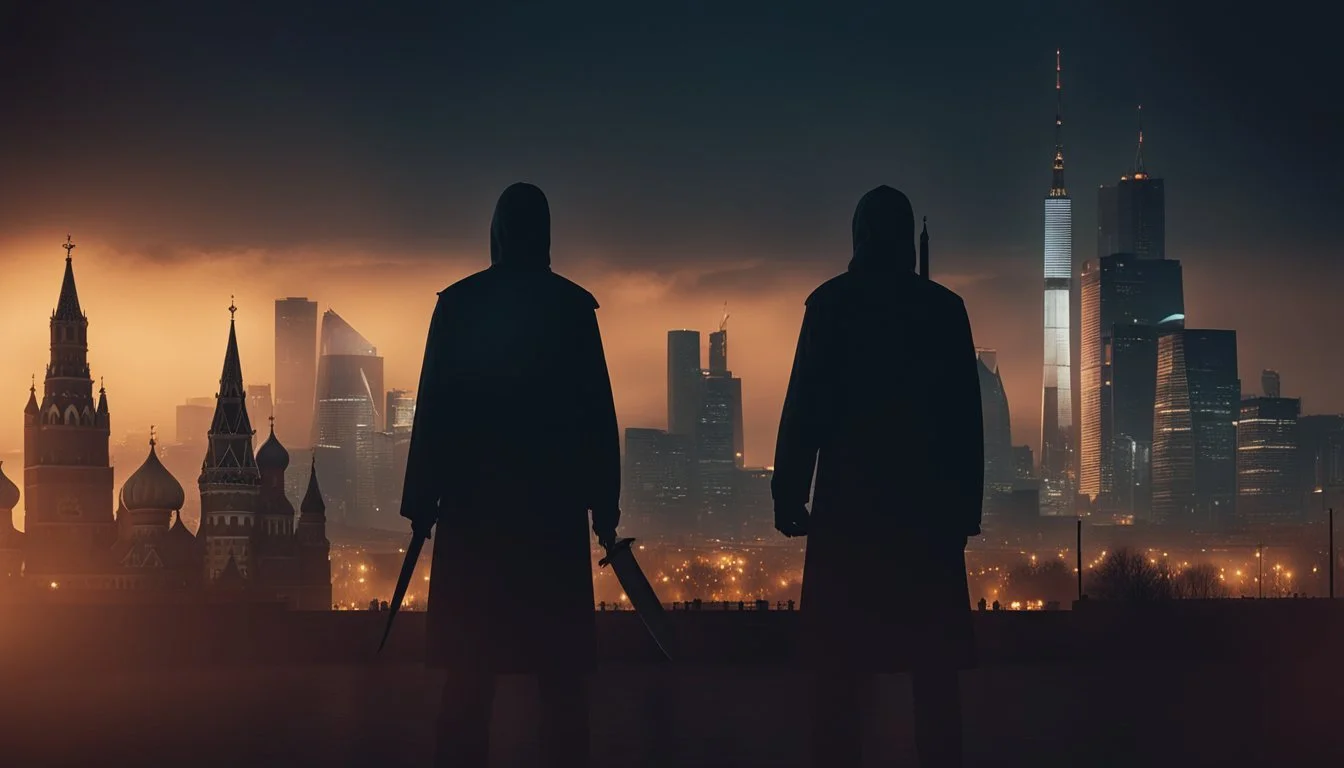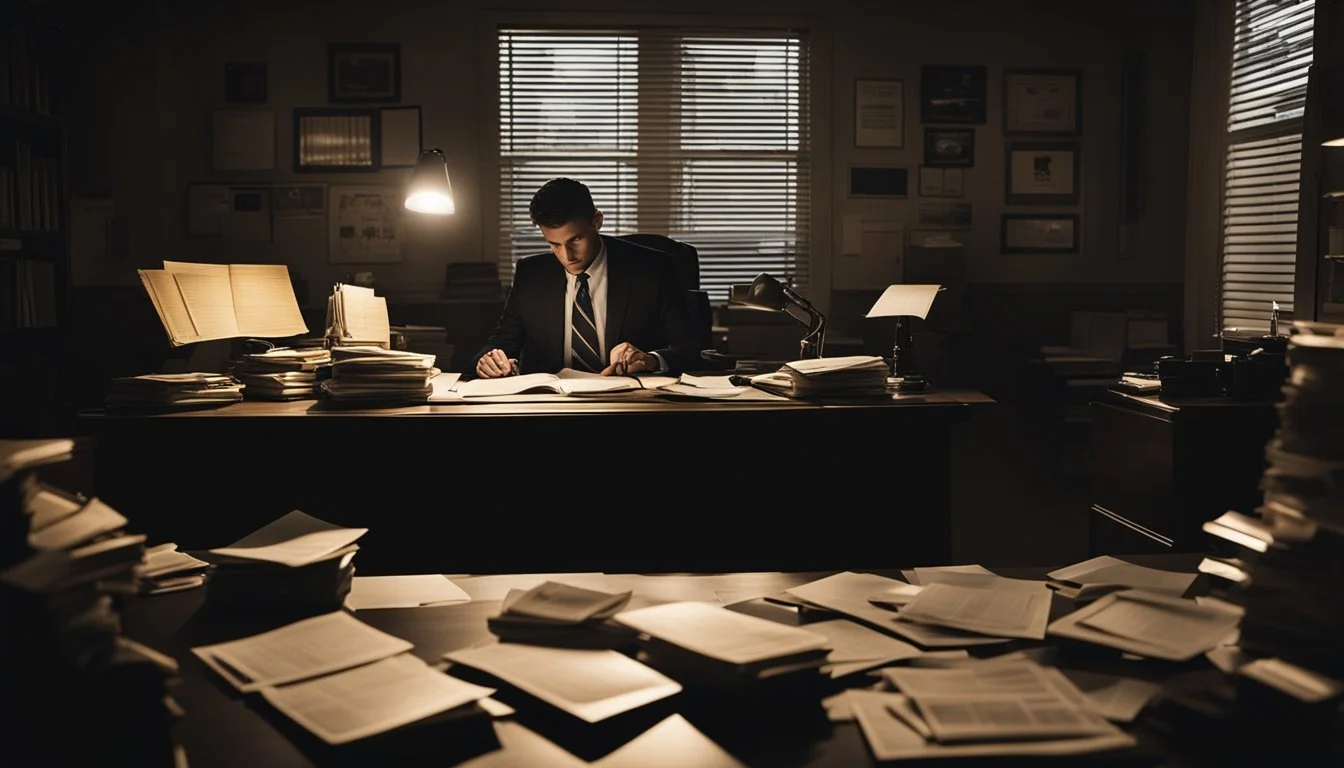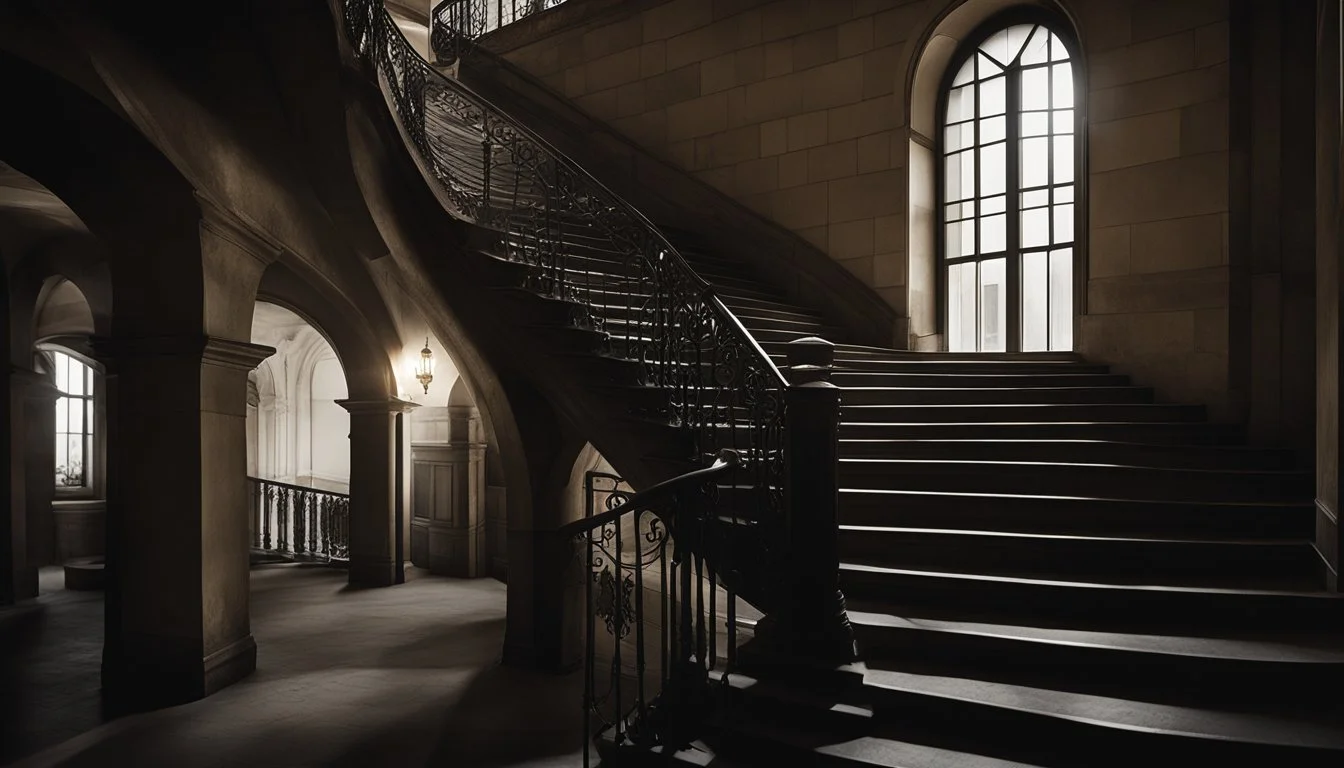7 True Crime Documentaries You Must See from Moscow
A Gripping Guide
True crime documentaries have captivated audiences worldwide, blending suspense with real-world investigations. This article showcases seven gripping true crime documentaries that have roots in Moscow and are essential viewing for anyone intrigued by the genre.
These documentaries offer compelling insights into some of the most fascinating and harrowing cases originating from this region. Delve into the stories of investigations, mysterious murders, and the quest for justice that will keep you on the edge of your seat.
1) The Act of Killing (2012)
"The Act of Killing" is a documentary that explores the Indonesian mass killings of 1965-66 through the eyes of the perpetrators.
Directed by Joshua Oppenheimer, the film presents reenactments by former death squad leaders who carry out their dramatized versions of the massacres they participated in.
These reenactments serve to peel back the layers of complex emotions, exposing the dark reality of these historical events.
The film takes an innovative approach, mixing surreal performances with interviews to provide a raw and unfiltered look at the lack of remorse among the perpetrators.
It challenges viewers to grapple with unsettling questions about morality, memory, and humanity.
"The Act of Killing" has received critical acclaim for its unique method and powerful impact, making it a must-watch for true crime enthusiasts.
2) Making a Murderer (2015)
"Making a Murderer" is a gripping 10-part documentary series that explores the controversial case of Steven Avery.
Avery, a Wisconsin man, was wrongfully convicted of sexual assault and attempted murder in 1985. After serving 18 years in prison, he was exonerated by DNA evidence in 2003.
The series delves into Avery's subsequent arrest in 2005 for the murder of Teresa Halbach, a local photographer. It raises questions about possible misconduct by law enforcement and whether Avery was framed.
Through extensive interviews, courtroom footage, and police recordings, the documentary exposes the complexities and potential flaws of the criminal justice system.
The series also examines the ordeal of Avery's nephew, Brendan Dassey, who was charged alongside his uncle. Dassey's questionable confession and subsequent conviction become central to the narrative.
"Making a Murderer" received widespread attention and sparked debates about legal ethics and justice. It has been praised for its thorough investigation and storytelling.
For more information, visit IMDB.
3) The Staircase (2004)
"The Staircase" is a documentary series that follows the trial of Michael Peterson, a man accused of murdering his wife, Kathleen. She was found dead at the bottom of their staircase, leading to a highly publicized legal battle. Michael Peterson, a novelist, claimed she fell, but the prosecution argued she was beaten to death.
The series originally released in 2004 and offers an in-depth look at the American criminal justice system. It provides a comprehensive view of both the defense and prosecution as they build their cases. The documentary's access to the courtroom and behind-the-scenes preparations sets it apart.
The series was later updated with new episodes, adding fresh developments and insights to the original story. These updates include new interviews and evidence, which keep viewers engaged and provide a fuller picture of the case.
For more information, you can visit "The Staircase" on Wikipedia.
4) Evil Genius (2018)
Evil Genius: The True Story of America’s Most Diabolical Bank Heist is a gripping documentary that unravels the details behind the infamous "pizza bomber heist".
In August 2003, a baffling bank robbery in Erie, Pennsylvania, led to a fatal explosion. The FBI's probe into the crime exposed a twisted plot involving a collar bomb, cryptic scavenger hunt, and an array of peculiar suspects.
The documentary meticulously pieces together the heist through interviews and real footage. Key players include Marjorie Diehl-Armstrong, a central figure in the case, whose intricate web of manipulation added layers of complexity.
Rare insights into the investigation reveal the intense efforts of law enforcement to decode the baffling crime. Narrated by Trey Borzillieri and directed by Borzillieri and Barbara Schroeder, Evil Genius captures the blend of chaos and calculation.
The series provides a chronological breakdown, keeping viewers on the edge with each revelation. It’s an eye-opener into how reality can often be more perplexing than fiction.
For more information, visit IMDb.
5) Forensic Files (1996)
Forensic Files is a classic and seminal true crime documentary series. It originally aired in 1996 and ran for 14 seasons, making it the longest-running true crime series on television.
Each episode dives into real crime cases, focusing on how forensic science helps to solve these mysteries. Evidence from crime scenes, interviews with experts, and detailed re-enactments guide viewers through the investigative process.
The show covers a wide variety of cases, from murders to mysterious epidemics, showcasing the crucial role of forensic science in modern investigations. It’s renowned for its clear presentation of complex scientific methods used to uncover the truth.
Forensic Files remains highly accessible, with episodes available on various platforms including YouTube and free TV services like Tubi. Fans of true crime will find it both informative and engaging.
More Information on Forensic Files
6) Abducted in Plain Sight (2017)
"Abducted in Plain Sight" (2017) is a gripping true crime documentary directed by Skye Borgman. It chronicles the harrowing story of Jan Broberg, who was abducted twice by her family's friend and neighbor in the 1970s.
This documentary delves into how Robert Berchtold manipulated and exploited the trust of the Broberg family. Jan was first kidnapped at the age of 12, and again two years later.
The film reveals the shocking tactics Berchtold used to deceive and control not only Jan but also her parents. The level of betrayal and deception is explored in depth, shedding light on the psychological manipulation involved.
The documentary provides an unsettling look at how a predator can infiltrate a seemingly secure family. It’s a disturbing portrayal of trust exploited in the worst way.
For further details, viewers can find more information on IMDb: Abducted in Plain Sight
7) Crime Scene: The Vanishing at the Cecil Hotel (2021)
"Crime Scene: The Vanishing at the Cecil Hotel" is the first season of the Crime Scene docuseries released in 2021, directed by Joe Berlinger. This gripping documentary examines the mysterious disappearance of Elisa Lam, a college student and tourist, who vanished while staying at the infamous Cecil Hotel in Downtown Los Angeles.
The Cecil Hotel has a dark history, with connections to various untimely deaths and even housing serial killers. This documentary delves into the chilling environment of the hotel and investigates the eerie circumstances surrounding Lam’s disappearance.
This series features interviews with hotel staff, police officers, and web sleuths who became obsessed with the case. It effectively portrays the intricate details and the palpable tension surrounding Elisa's last days.
The documentary stands out for its meticulous storytelling and provides a deep dive into one of the most mysterious disappearances in recent history. It is a must-watch for true crime enthusiasts who are intrigued by unresolved mysteries and the macabre history of notorious locations.
For more information, visit IMDB.
Cultural and Social Impact of True Crime in Russia
True crime documentaries set in Russia highlight both historical and sociocultural aspects that influence public interest and perception. They shed light on the historical context of Russian criminology and the growing fascination with true crime stories.
Historical Context
In late imperial Russia, crimes were more than just violations of law; they were seen as significant social disruptions. Discussions among criminologists, defense attorneys, and forensic experts shaped the understanding of what constituted "criminal" behavior.
These debates were instrumental in forming modern Russian criminology and forensic practices.
The country's tumultuous history, characterized by political upheaval and legal transformations, has made crimes from this era particularly compelling. Documentaries exploring these topics provide an insight into the societal repercussions and judicial responses to crime during this period.
Public Fascination with True Crime
The Russian public's interest in true crime is driven by a desire to understand the extremities of human behavior. Documentaries featuring notorious Russian criminals, such as maniacs and murderers, captivate audiences by presenting real-life mysteries and criminal investigations.
Shows like Time for a Crime dive into these dark tales, offering a blend of historical accounts and psychological analysis.
This fascination is not unique to Russia but reflects a global trend where true crime serves as both entertainment and a cautionary tale. The balance between educating the public about criminal psychology and sensationalizing crime stories continues to be a fine line that documentary makers navigate.
Filmmaking Techniques in True Crime Documentaries
True crime documentaries rely on specific filmmaking techniques that enhance the storytelling and credibility of the narrative. Key techniques include various narrative styles and the strategic use of archival footage.
Narrative Styles
True crime documentaries often employ distinct narrative styles to engage viewers. Some adopt a chronological approach, laying out events in the order they happened, creating a seamless storyline.
Others use a non-linear narrative, which jumps between different time periods, adding suspense and depth to the story.
Interview-driven narratives are prominent. Filmmakers interview victims, witnesses, and experts, blending these perspectives to provide a comprehensive view of the crime.
Re-enactments are also used to visualize events, offering viewers a more visceral experience. These re-enactments are usually based on court documents and eyewitness testimonies to ensure accuracy.
Use of Archival Footage
Archival footage plays a crucial role in true crime documentaries. Police recordings, news clips, and courtroom footage help establish a factual basis and historical context for the story.
Access to this footage adds authenticity and allows viewers to connect with real moments.
Photographs of crime scenes, victims, and suspects often punctuate the narrative, providing visual evidence that complements verbal accounts.
Audio recordings, such as 911 calls, offer an unfiltered glimpse into the moments surrounding the crime.
By leveraging these archival materials, filmmakers can create a compelling and credible documentary that resonates deeply with the audience.
Legal and Ethical Considerations
In the true crime documentary genre, there are significant legal and ethical elements that creators must carefully navigate. Specific focus should be given to areas such as obtaining consent, maintaining privacy, and the potential influence on active legal proceedings.
Consent and Privacy Concerns
Consent is a foundational element in producing ethical true crime documentaries. Documentarians must ensure they obtain explicit permissions from individuals featured in their films, including victims' families, witnesses, and the accused. Lack of proper consent can lead to serious legal repercussions and claims of exploitation.
Privacy is another critical issue. While the public often has a keen interest in crime details, filmmakers have a duty to protect the identities of those involved, especially minors and victims. Examples include blurring faces and redacting names where consent is not obtained. The repercussions of neglecting privacy rights can include legal battles and public backlash.
Impact on Ongoing Investigations
True crime documentaries can potentially influence active investigations and judicial processes. When producing content about ongoing cases, filmmakers need to tread carefully to avoid prejudicing criminal proceedings. Disseminating biased or unverified information can jeopardize trials and investigations.
Engaging with law enforcement and legal experts during the production process can help mitigate risks. This approach ensures that documentary content does not impede justice or infringe on legal protocols. Filmmakers should also be mindful of the timing of their releases, withhold sensitive information, and avoid sensationalism that might affect jurors or witnesses.










